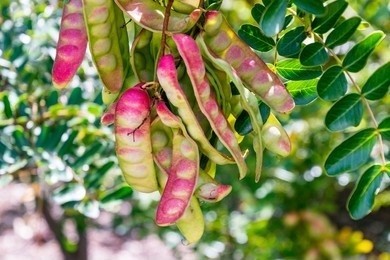Fabaceae Plant Tissue Culture

The Fabaceae family is the third-largest family of angiosperms after Asteraceae and Orchidaceae, with a wide variety of species, about 748 genera and 19,700 species, which are widely distributed throughout the world. It grows in complex and diverse environments and can be found in plains, mountains, deserts, forests, grasslands, and waters.
Modern pharmacological research shows that some genera and species of Fabaceae plants contain a variety of chemical components, such as flavonoids, isoflavones, dihydro flavonoids, chalcones, triterpenoids, sterols, rotenone, coumarins, alkaloids, and sterols. It has anti-arrhythmic, anti-tumor, hepatoprotective and anti-liver fibrosis, anti-inflammatory and anti-allergic, anti-viral, anti-bacterial, anti-diabetic, and anti-oxidant effects.
Tissue culture service
Some of the Fabaceae plants that have been successfully subjected to tissue culture by Lifeasible.
- Vicia faba
- Glycine max
- Sophora alopecuroides L.
- Arachis hypogaea
- Medicago sativa
- Albizia julibrissin
- Sesbania grandiflora (Linn.) Pers.
- Trifolium repens
- Cajanus cajan
- Pisum sativum
- Glycyrrhiza uralensis
Fabaceae plant tissue culture pathways
- Embryo and endosperm culture
Lifeasible uses embryo culture techniques to obtain sterile embryos of Fabaceae plants to overcome embryo abortion by allowing young embryos to develop into seedlings under ex vivo conditions without going through the normal process of seed development and germination. The use of embryo culture technology can overcome hybrid sterility, and test tube pollination can be performed using ovule or ovary culture. And the culture of endosperm as triploid has its more important value in economic terms.
- Anther and pollen culture
- Cell suspension culture
Lifeasible uses suspension cell culture for fast proliferation and to provide a large number of homogeneous Fabaceae plant cells that can be used in the production of drugs or other useful natural products, etc.
Lifeasible has obtained somatic cell hybrids of Fabaceae plants through studies on protoplast fusion. Inducing protoplast fusion for cell hybridization is an important tool to overcome some obstacles in distant hybridization.
You want to sign a confidentiality agreement.
You have a specific plant species for your experimental needs.
You have a reliable and relevant cooperation project to discuss.
You are very interested in our project or have any questions.
You need an updated and detailed quotation.
For research or industrial use.



